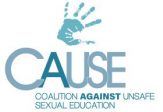Copyright 2016. All rights reserved. Print copies available at TheNewAtlantis.com/BackIssues.
Part One: Sexual Orientation
Problems with Defining Key Concepts
A 2014 New York Times Magazine piece titled “The Scientific Quest to Prove Bisexuality Exists”8 provides an illustration of the themes explored in this Part— sexual desire, attraction, orientation, and identity—and of the difficulties with defining and studying these concepts. Specifically, the article shows how a scientific approach to studying human sexuality can conflict with culturally prevalent views of sexual orientation, or with the self-understanding that many people have of their own sexual desires and
identities. Such conflicts raise important questions about whether sexual orientation and related concepts are as coherent and well-defined as is often assumed by researchers and the public alike.
The author of the article, Benoit Denizet-Lewis, an openly gay man, describes the work of scientists and others trying to demonstrate the existence of a stable bisexual orientation. He visited researchers at Cornell University and participated in tests used to measure sexual arousal, tests that include observing the way pupils dilate in response to sexually explicit imagery. To his surprise, he found that, according to this scientific measure, he was aroused when watching pornographic films of women masturbating:
Might I actually be bisexual? Have I been so wedded to my gay identity—one I adopted in college and announced with great fanfare to family and friends—that I haven’t allowed myself to experience another
part of myself ? In some ways, even asking those questions is anathema to many gays and lesbians. That kind of publicly shared uncertainty is catnip to the Christian Right and to the scientifically dubious, psychologically damaging ex-gay movement it helped spawn. As out gay men and lesbians, after all, we’re supposed to be sure—we’re supposed to be “born this way.”9
Despite the apparently scientific (though admittedly limited) evidence of his bisexual-typical patterns of arousal, Denizet-Lewis rejected the idea that he was actually bisexual, because “It doesn’t feel true as a sexual orientation, nor does it feel right as my identity.”10
Denizet-Lewis’s concerns here illustrate a number of the quandaries raised by the scientific study of human sexuality. The objective measures the researchers used seemed to be at odds with the more intuitive, subjective understanding of what it is to be sexually aroused; our own understanding of what we are sexually aroused by is tied up with the entirety of our lived experience of sexuality. Furthermore, Denizet-Lewis’s insistence
Fall 2016 ~ 15
